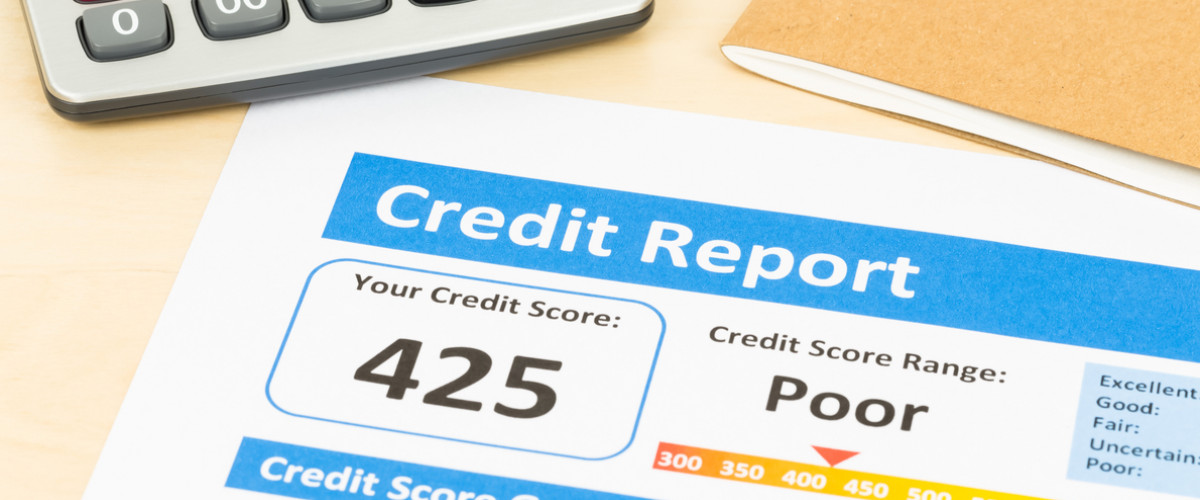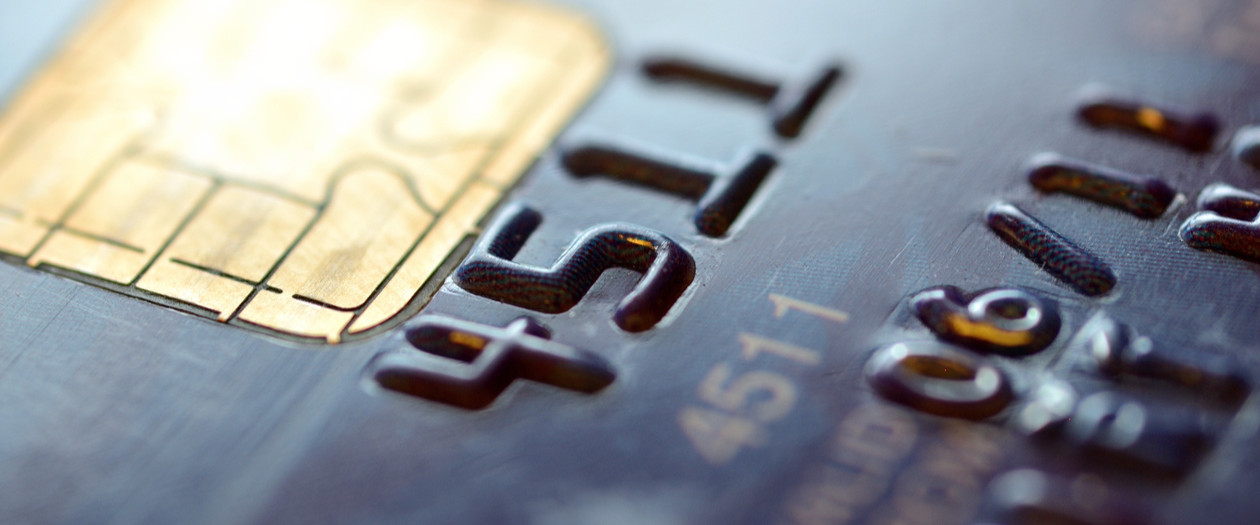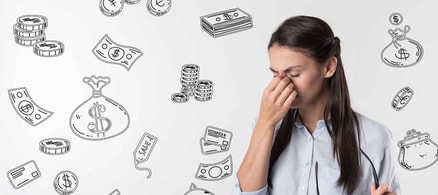Here are some highlights from America's credit education and debt landscape:
- According to a January 2023 FICO study, only 1 in 5 Gen Z Americans understand credit scores compared to 96% of Boomers.
- Although 90% of Americans say they at least somewhat understand what a credit score is, there’s a gap in knowledge surrounding how to improve your credit score since only 37% check their scores monthly.
- A January 2023 Bankrate survey also reveals that 35% of Americans carry over credit card debt from month to month.
No matter how low your score might be right now, it is possible to get your finances back on track if you follow the right steps. You'll need to make a commitment to pay off your debts, one day at a time.
What is a credit score and how does it work?
A credit score is a three-digit number that lets banks know how responsible you are with money,. It tells lenders how big a risk you might be if you ever request a loan, such as a car loan.
The credit score you hear about most in the United States is FICO, which uses an algorithm to score you on a scale between 300 and 850.
Lenders may have their own standards of what a "good" credit score is, but a general guide is this:
300-629: Bad credit
630-689: Fair or "average" credit
690-719: Good credit
720 and up: Excellent credit
There are three major credit reporting agencies in North America: TransUnion, Experian and Equifax. You want good scores from all three credit bureaus to maximize your chances of landing a loan.
Each of the "big three" prepares its own credit reports, and you can get a free copy of yours once a year. Seeing what's in each report is a good first step toward bolstering your related credit score.
All right, are you ready to roll up your sleeves and fix your credit score for good? We're here to tell you how to do it.
Kiss Your Credit Card Debt Goodbye
Having a single loan to pay off makes it easier to manage your payments, and you can often get a better interest rate than what you might be paying on credit cards and car loans.
Fiona is an online marketplace offering personalized loan options based on your unique financial situation.
When you consolidate your debt with a personal loan, you can roll your payments into one monthly installment. Find a lower interest rate and pay down your debt faster today.
Get StartedHow to fix your credit score fast
1. Review your credit history

Sites like Credit Sesame can offer easy access to your credit history.
One way to take stock of your history and get on the right track is to sign up for a comprehensive credit service, such as Credit Sesame. It offers a free credit score, free credit report card, credit trackers and advanced reporting on your credit history.
You also can get free credit monitoring to help minimize the risk of fraud and errors on your account in the future.
With your credit score in hand, you've already completed the first step to repairing it.
2. Dispute errors and outdated information

Double check your credit reports.
Next, track down a copy of your full credit report — you can get it for free in a few ways. Go through it line by line to see if there's any outdated or incorrect information, and make a note of it.
Incorrect information may include loans you’ve already paid off, and erroneous details about how many times your credit was checked (having a lot of credit checks by lenders lowers your score).
Once you gather this information, it's time to go on the offensive and request an investigation. Ask for proof of any charges that are incorrect.
Unproven credit charges should drop off your report completely once you give notice that they are wrong. Depending on your home state, there may also be consumer credit protection laws in place to force the agencies to help you correct any mistakes or fraud.
3. Hire professionals for the paper chase

The next step to raising your credit score is to call in the professionals
The next step toward raising your credit score is to call in the professionals. You can skip this part if you find only a few minor errors on your credit report or if you manage to get all the issues resolved.
If you've run up significant debt on multiple credit cards, consider hiring a legal service to track down documentation on your behalf, so you can dispute all the errors efficiently and completely.
You'll have to wait around a month to see the effect on your credit score, but you'll be surprised to see how quickly it goes up just from fixing the errors. Seeing progress at this stage can be a huge inspiration to keep up the effort to improve your credit score.
4. Get a secured credit card

Secured credit cards are like training wheels for credit building.
A secured card works like this: You make a deposit (let's say $500), and the bank holds that money as collateral. Your new card then has a limit of $500. You use this card like a regular credit card for a few months, making sure to pay off the card in full every month.
In effect, you're rebuilding your credit score by proving to the bank that you repay your debts. After a few months, as your score improves, you can see if you qualify for a regular unsecured credit card. The bank gives back the $500 collateral when you switch to the unsecured card.
When you get a secured credit card, you can build your credit quickly.
5. Negotiate a partial repayment

If you haven't done so yet, the next (and most important) step to fixing your credit score is to pay off your credit card debt. Create a manageable budget and put yourself on an avalanche repayment schedule.
Then, sit down with your up-to-date credit report and start calling companies with delinquent or collection items in your file.
Ask to speak to a credit representative, and follow this script: “I don't have enough money right now to pay in full, but I'll give you ‘X’ to settle it right now.”
Somecreditors might be happy to take 50% of the amount you owe. The standard is usually zero repayment, so they might see 50% as a good deal.
6. Lower your credit utilization rate

When you start paying off your credit card debt, you're lowering your credit utilization rate. Credit utilization refers to how much of your available credit you're using.
For example, if you have a $1,000 limit on a card and you have an unpaid debt of $800 that keeps rolling over to the next month, you're at 80% credit utilization.
Credit reporting agencies penalize high credit utilization, which lowers your credit score. The more you cut down your debt, the lower your credit utilization will be and the higher your credit score.
Keeping your credit utilization at 30% or lower is essential to maintaining a high credit score. Once you've paid off your debts, be sure to avoid using more than 30% of your available credit in the future.
Improving your credit score
To fix your credit score, you need to:
-
Take the time to fix any errors on your credit report.
-
Start rebuilding your credit with a secured credit card.
-
Keep your credit utilization low.
-
Steadily repay your debts consistently over time.
If you follow these steps, you’ll be on the right path to fixing your credit score. Remember that no one expects you to pay off all of your debt immediately.
The important thing is to get organized and start repaying your debts as soon as you can. Getting serious about fixing your credit score can have a profound impact on your life and on your outlook for the future.
More: Monitor your credit with Credit Sesame.
Sponsored
Follow These Steps if you Want to Retire Early
Secure your financial future with a tailored plan to maximize investments, navigate taxes, and retire comfortably.
Zoe Financial is an online platform that can match you with a network of vetted fiduciary advisors who are evaluated based on their credentials, education, experience, and pricing. The best part? - there is no fee to find an advisor.






